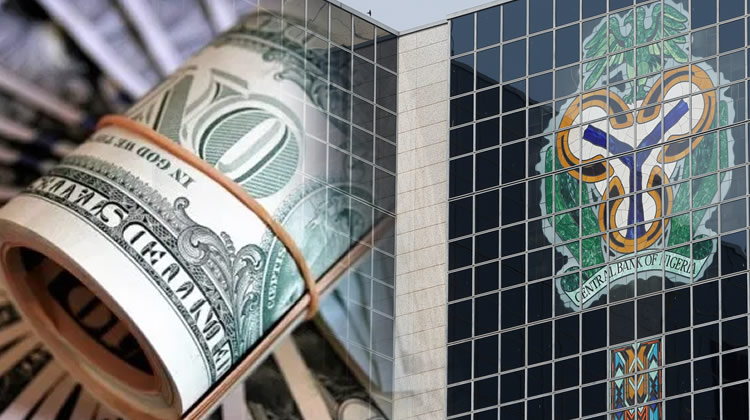Nigeria’s Central Bank (CBN) announced a significant injection of $500 million into the foreign exchange market. This decision aims to alleviate the persistent backlog of foreign exchange demand, signaling a robust approach to boosting the national currency, the Naira, which has been facing a downward trend.
Strategic Financial Maneuvers to Revitalize the Naira
As the Naira continues its precarious slide towards an unprecedented N1,500 to the dollar mark on the parallel market, the CBN’s latest financial infusion seeks to provide a much-needed lifeline.
Despite previous attempts to rectify the currency’s depreciation, including a substantial $2 billion disbursement aimed at critical sectors such as manufacturing, aviation, and petroleum, the Naira’s value continued to plummet. Consequently, this has raised alarm bells about the potential ramifications for Africa’s largest economy.
Moreover, in an innovative twist, President Bola Tinubu has mandated the rerouting of crude oil revenue directly to the CBN, a move poised to enhance transparency and accountability in the nation’s financial dealings.
This directive marks a significant shift from the previous arrangement, where the Nigerian National Petroleum Company (NNPC) held sway over crude oil transactions. This new strategy underscores a concerted effort to safeguard the economy against potential fiscal mismanagement and bolster investor confidence.
CBN Comprehensive Reforms to Foster Market Stability
The CBN, under the stewardship of acting Director Hakama Sidi Ali, is not only focused on immediate financial injections but also on implementing sweeping reforms aimed at rectifying fundamental market challenges.
These include efforts to unify exchange rates, enhance market transparency, and curtail arbitrage opportunities. Such reforms are critical for establishing a stable and predictable foreign exchange environment, attracting foreign investment, and fostering economic growth.
Additionally, the CBN has reiterated its commitment to clearing the existing backlog of foreign exchange demands, having already disbursed substantial amounts across various sectors and foreign airlines. These actions reflect the central bank’s dedication to resolving the liquidity crunch that has hampered the Naira’s performance and impacted the broader economy.
With the federal government securing a significant foreign exchange facility from the African Export–Import Bank (Afreximbank), there’s renewed optimism about Nigeria’s capacity to navigate its current economic challenges. This external financial support and the CBN’s proactive measures represent a multifaceted strategy to revitalize the Naira and restore investor confidence.
The global community watches closely as Nigeria embarks on this critical journey towards economic stability. The success of these initiatives could not only reverse the Naira’s fortunes but also set a precedent for financial management and economic recovery in the region. Consequently, the nation stands at a pivotal juncture, with its future economic trajectory hinging on implementing these bold financial and policy reforms effectively.





